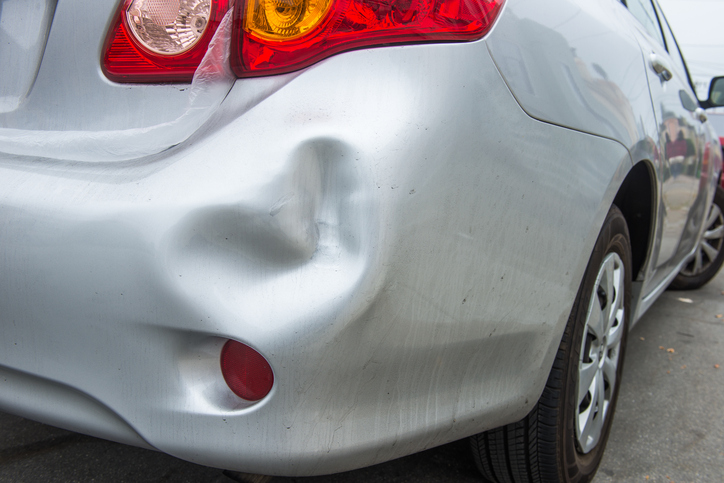dent
(noun, verb)
/dɛnt/
 LISTEN
LISTEN


A dent is a hollow or depression in a surface and, figuratively, an effect that is highly noticeable, especially one related to reduction. As a verb, to dent means ‘to make a dent in a surface’ or ‘to become dented,’ as well as ‘to have a reducing or harmful effect.’
Example sentences
- Someone reversed into my car in the parking lot and now there's a big dent in the car door.
- Paying for the refurbishments to the house has certainly made a dent in our savings.
- The hammer blow dented the metal.
- Robert saw the hood of his car dent as the huge hailstone hit it.
- The boss's stinging criticism dented Kate's confidence.
In pop culture
Arthur Dent is the main character in the Hitchhiker’s Guide to the Galaxy, which started as a radio series, became a series of books and then was adapted for television and later made into a movie. Here is a clip from the TV series:
Additional information
In engineering, a dent is also a toothlike projection on something, like the tooth of a gearwheel.
Did you know?
Origin
Dent dates back to the late 13th or early 14th century, and originally meant ‘a strike or blow.’ It was a dialectal variant of the noun dint, which dates back to before the year 900, as the Old English dynt, which specifically meant ‘a blow dealt in a fight.’ It can be traced back to the Proto-Germanic word duntiz, and was related to the Old Norse dyntr (blow or kick). The meaning we use now, ‘indentation,’ including in a figurative sense, first appeared in the mid-16th century, due to the influence of the word indent. The verb dates back to the late 14th century, and comes from the noun. Its meaning changed around the same time as the noun’s.
Dent was suggested by Giacomo, from Italy.
Word of the Day is released Monday through Friday.



